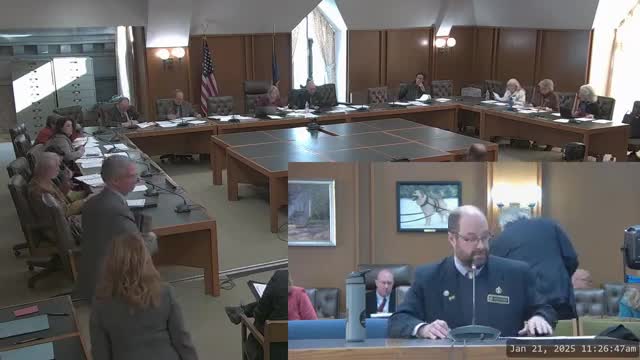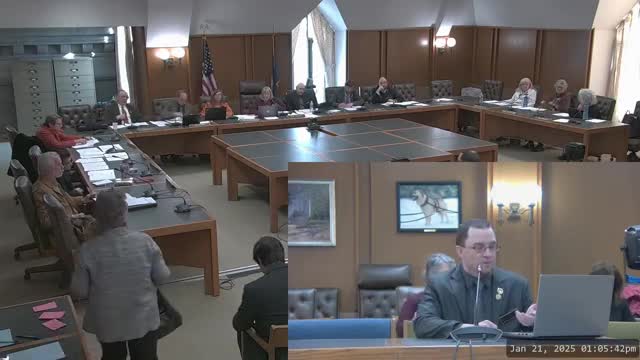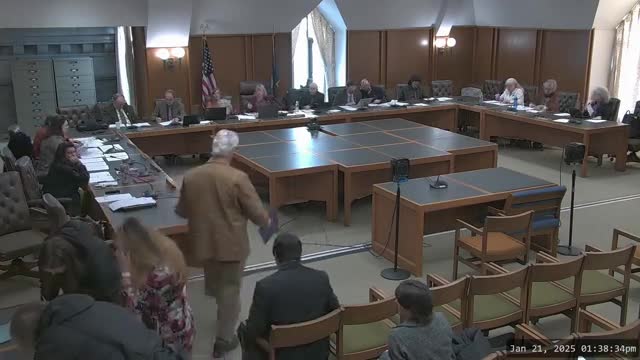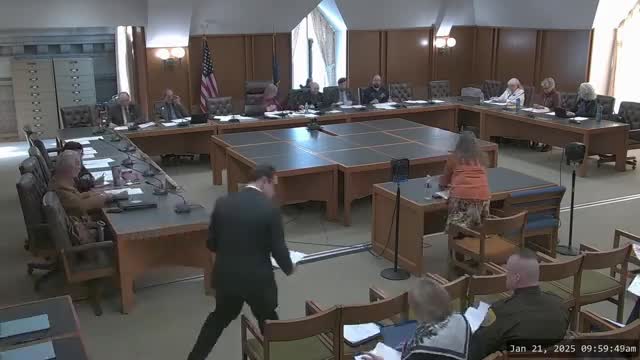Article not found
This article is no longer available. But don't worry—we've gathered other articles that discuss the same topic.

Committee hears bill to require independent harms‑and‑benefits appraisal for landfill permits

Committee hears bill to remove warrant seizure clause tied to unpaid dog‑license fees

Committee hears renewed push to ban cat declawing; veterinarians urge preserving clinical judgment

